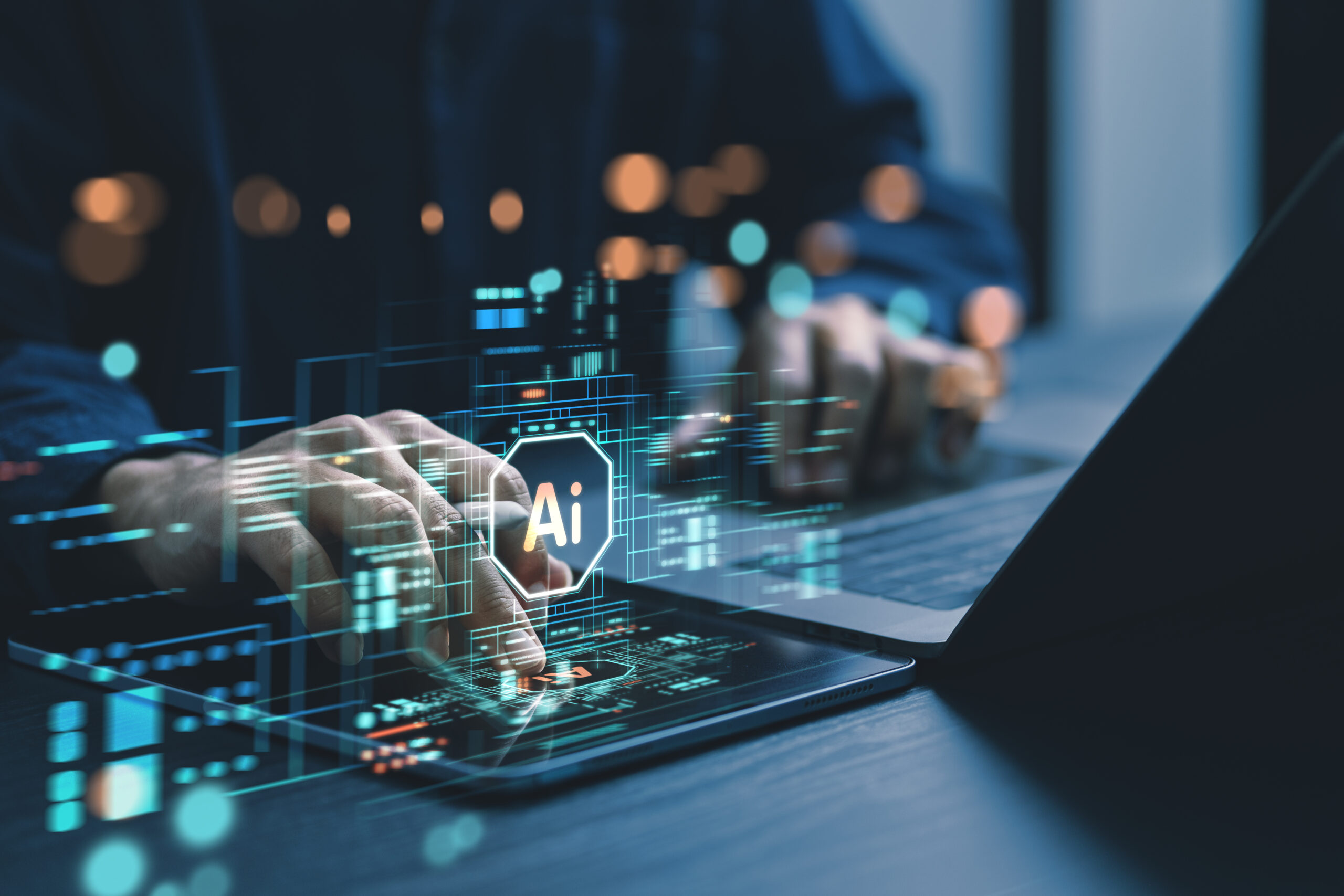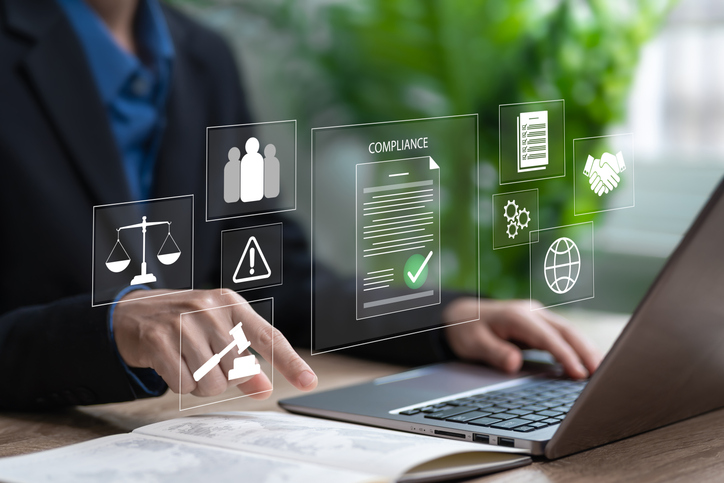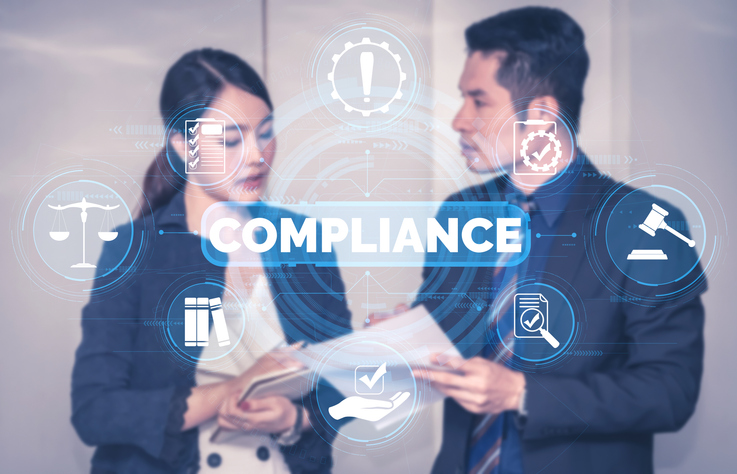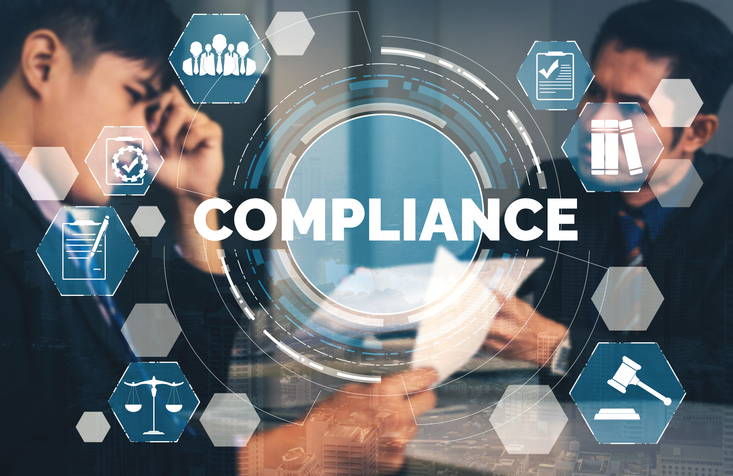Artificial intelligence (AI) is becoming more present in the workplace, enhancing productivity, and streamlining operations across industries. However, it also presents challenges that organizations must carefully navigate. Understanding the pros and cons of AI in the workplace can help employers and employees make informed decisions about its implementation.
The Pros of AI in the Workplace
1. Increased Efficiency and Productivity
AI can handle repetitive and time-consuming tasks with speed and precision. From scheduling meetings to processing invoices, AI frees employees to focus on higher-value work such as strategy, problem-solving, and innovation. This shift not only improves efficiency but also reduces burnout among employees who would otherwise be stuck in tedious tasks.
2. Enhanced Decision-Making
With AI-driven analytics, businesses can process vast amounts of data to uncover patterns, forecast outcomes, and support better decisions. For example, HR teams can use AI to identify retention risks, while sales departments can predict customer churn. Data-backed decisions reduce guesswork and help organizations stay competitive.
3. Cost Savings
Automation reduces reliance on manual labor for routine tasks, lowering long-term labor costs. Additionally, AI can optimize supply chains, reduce downtime with predictive maintenance, and streamline resource allocation—saving organizations money in multiple areas.
4. Improved Customer Experience
AI-powered chatbots, voice assistants, and recommendation engines provide personalized, round-the-clock customer support. By addressing common inquiries instantly, businesses can deliver faster service while allowing human agents to handle complex or emotionally sensitive cases.
5. Workplace Safety
AI-driven monitoring systems and wearable devices can detect safety hazards in real time. For industries like construction, logistics, and healthcare, these tools reduce accidents, improve compliance, and promote a safer work environment.
6. New Job Opportunities
While AI disrupts certain roles, it also creates new positions in data science, machine learning, ethics, and AI governance. Companies investing in reskilling can strengthen employee loyalty while filling emerging skill gaps.
7. Boost to Creativity and Innovation
Generative AI tools can spark creative ideas for marketing campaigns, product design, or customer engagement. When paired with human oversight, AI fosters innovation instead of stifling it.
8. Support for Global Collaboration
AI-powered translation, transcription, and collaboration tools bridge language and cultural barriers, making it easier for teams across different countries to work together seamlessly.
The Cons of AI in the Workplace
1. Job Displacement and Workforce Anxiety
AI-driven automation threatens jobs in clerical, administrative, and customer service roles. Even when jobs remain, employees may fear being replaced—leading to lower morale.
2. Bias and Ethical Concerns
AI systems reflect the data they’re trained on. Inherit biased data can result in discriminatory hiring, unfair promotions, or unequal treatment in customer service. Ensuring ethical AI use requires ongoing oversight and regulation.
3. High Implementation Costs
Integrating AI into workplace systems can be expensive, requiring significant investment in technology, training, and infrastructure.
4. Cybersecurity Risks
AI systems are vulnerable to cyberattacks, data breaches, and hacking attempts. AI processes sensitive data, making it a prime target for hackers. Companies must implement robust security measures to protect sensitive information. Without robust cybersecurity, companies risk financial losses, regulatory penalties, and reputational harm.
5. Lack of Human Touch
While AI can improve efficiency, it lacks emotional intelligence and human empathy, which are crucial in roles requiring interpersonal skills, such as HR and customer relations.
6. Dependence on Technology
Organizations overly reliant on AI may lose resilience when systems fail or when vendors stop supporting tools. Human oversight remains essential.
7. Legal and Regulatory Uncertainty
AI regulations are evolving rapidly across regions. Companies adopting AI risk non-compliance with emerging laws around data use, privacy, and transparency.
8. Over-Reliance on AI-Generated Content
Generative AI can assist with content creation but may produce errors, inaccuracies, or plagiarism risks. Without human review, businesses could damage credibility or face legal disputes.
Quick Reference when Comparing the Pros and Cons of AI in the Workplace
| Pros of AI in the Workplace | Cons of AI in the Workplace |
|---|---|
| Boosts efficiency & reduces human error | Risk of job displacement |
| Enables smarter decision-making | Can reinforce bias & ethical issues |
| Cuts costs across operations | High implementation expenses |
| Improves customer experience | Data privacy & cybersecurity risks |
| Enhances workplace safety | Lacks human empathy |
| Creates new career opportunities | Over-dependence on technology |
| Fuels creativity & innovation | Legal/regulatory uncertainty |
| Supports global teamwork | Risk of low-quality AI-generated content |
Striking the Right Balance
To fully leverage the benefits of AI while mitigating its risks, organizations should implement AI training programs to help employees adapt to technological changes. Businesses must also focus on ethical AI practices to prevent bias and uphold workplace fairness.
To maximize its benefits while reducing risks, organizations should:
-
Invest in employee reskilling to adapt roles alongside AI.
-
Establish AI ethics frameworks to prevent bias and ensure fairness.
-
Prioritize data protection with strong cybersecurity practices.
-
Encourage human-AI collaboration where AI supports rather than replaces people.
By carefully assessing the pros and cons of AI in the workplace, companies can integrate AI responsibly, creating a future where technology enhances—not replaces—human talent.
Frequently Asked Questions on the Pros and Cons of AI in the Workplace
1. Can AI boost productivity without leading to job loss?
AI automates repetitive tasks, allowing employees to focus on higher-value work. However, without reskilling initiatives, automation can also fuel job displacement and workforce anxiety.
2. Does AI in hiring reduce bias or make it worse?
AI can improve fairness by removing human subjectivity in resume screening. Still, biased training data can reinforce discrimination, making regular audits and ethical oversight critical.
3. Is AI in workplace security a safeguard or a new risk?
AI detects threats faster than humans, strengthening cybersecurity and physical safety. At the same time, AI systems themselves are targets for hackers, requiring robust protections.
4. How does AI decision-making help businesses—and where can it go wrong?
AI delivers fast, data-driven insights to guide strategy and operations. But over-reliance on algorithms can weaken human judgment, especially in sensitive or ethical decisions.
5. What’s the best way to balance AI’s pros and cons in the workplace?
Businesses should adopt AI alongside employee training, transparent ethical guidelines, and strong data protections. This ensures AI enhances rather than undermines workplace culture and performance.








